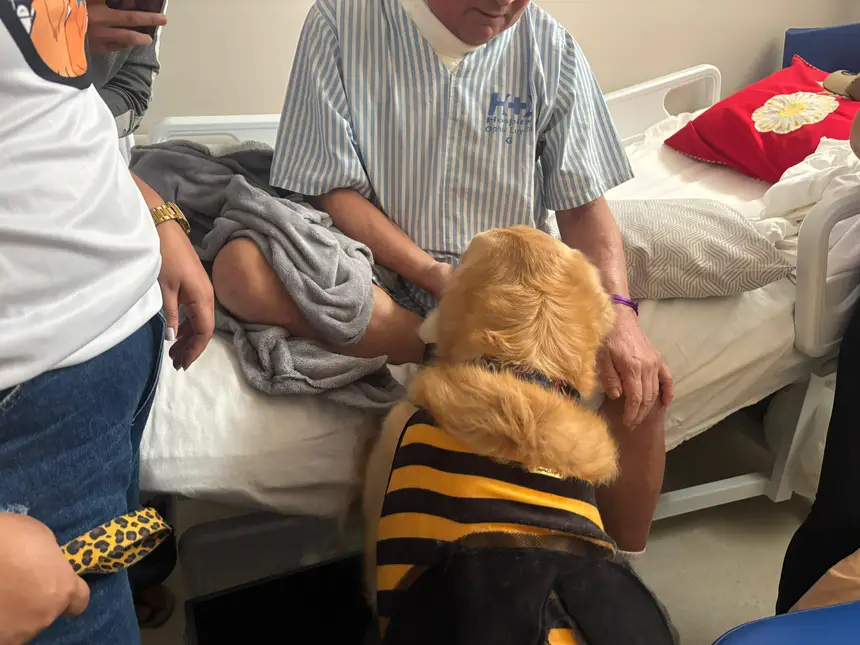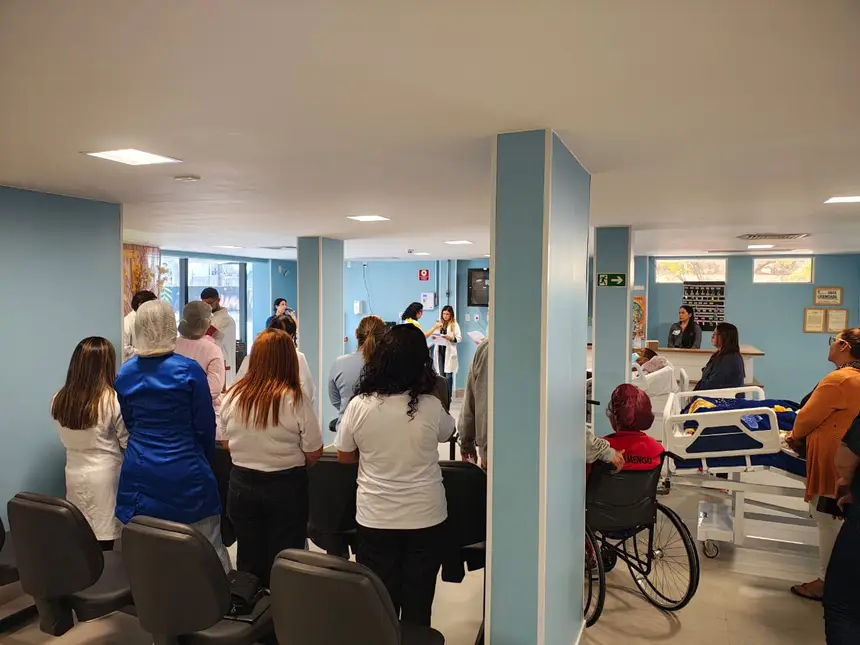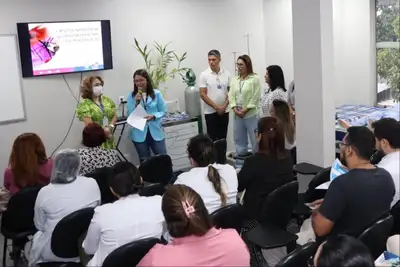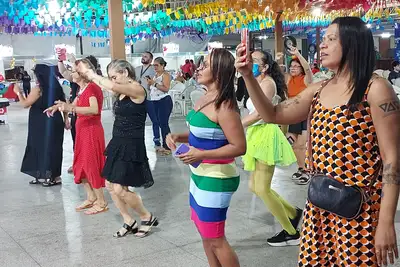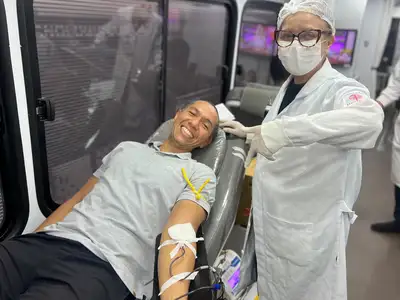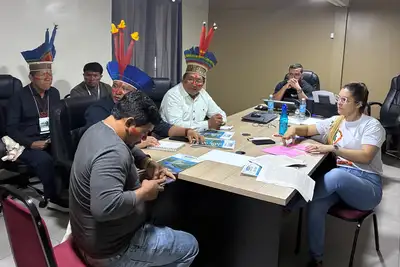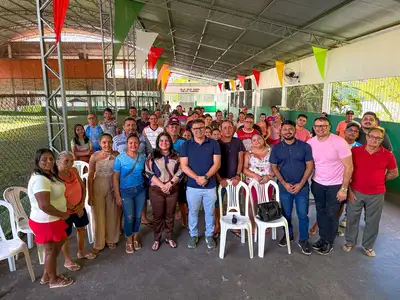HOL celebrates one year of the exclusive space dedicated to oncological palliative care
Pioneering center in the SUS in the North region consolidates advances, expands care, and strengthens the humanization of assistance in Pará
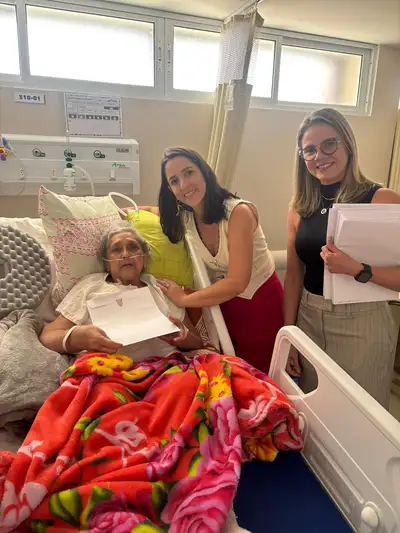
The Ophir Loyola Hospital celebrated, this September, the first year of the physical space of the Oncological Palliative Care Center (CCPO), establishing itself as a reference in the Unified Health System (SUS) and pioneering in the North region. With a highly qualified multidisciplinary team, the center offers comprehensive, humanized, and continuous care to oncological patients and their families, prioritizing quality of life, dignity, and respect for individual choices.
Achievements of the first year - According to the coordinator of the CCPO, Dr. Daia Hausseler, the period was marked by significant achievements. “It was a year of great advances, which demonstrates the strength of palliative care in our institution, in our State, and in our country. The inauguration of the center allowed for greater autonomy, comfort, and integration of the team. We worked on care protocols, completed the first cycle of Proadi SUS, included our service in the Atlas of Palliative Care in Brazil, expanded care to earlier phases of treatment, and received medical and multidisciplinary residents. It was an important start, driven by our founding coordinator, Dr. João de Deus, which we intend to continue,” she stated.
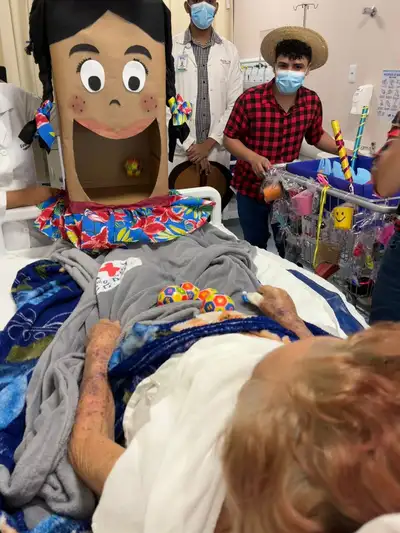
Humanization in oncological care - The philosophy of humanization guides all actions of the CCPO. “It is through active listening, optimized symptom management, and respect for the autonomy and dignity of the patient, combined with multidisciplinary and transdisciplinary action, that we can offer truly humanized care,” explained the coordinator.
Results in numbers - This approach translates into concrete results. Between 2022 and 2024, the palliative care clinic at HOL attended to 639 hospitalized patients and conducted
1,958 outpatient consultations. The majority of patients are female (69%), with an average age of 61 years. The most common types of cancer include thyroid, breast, lung, stomach, and cervical cancer.
The perspective of the multidisciplinary team - Care goes far beyond the end of life: it is offered from diagnosis and throughout the entire disease trajectory. Multidisciplinary action is fundamental in this process. For occupational therapist Vanessa Mendes, the physical space inaugurated a year ago expanded the possibilities for intervention. “We were able to expand interventions, implement therapeutic groups and workshops, and put interdisciplinary projects into practice. Each professional acts within their specific knowledge, but always in an interdependent and collaborative manner, with the common goal of alleviating suffering and promoting quality of life,” she highlighted.
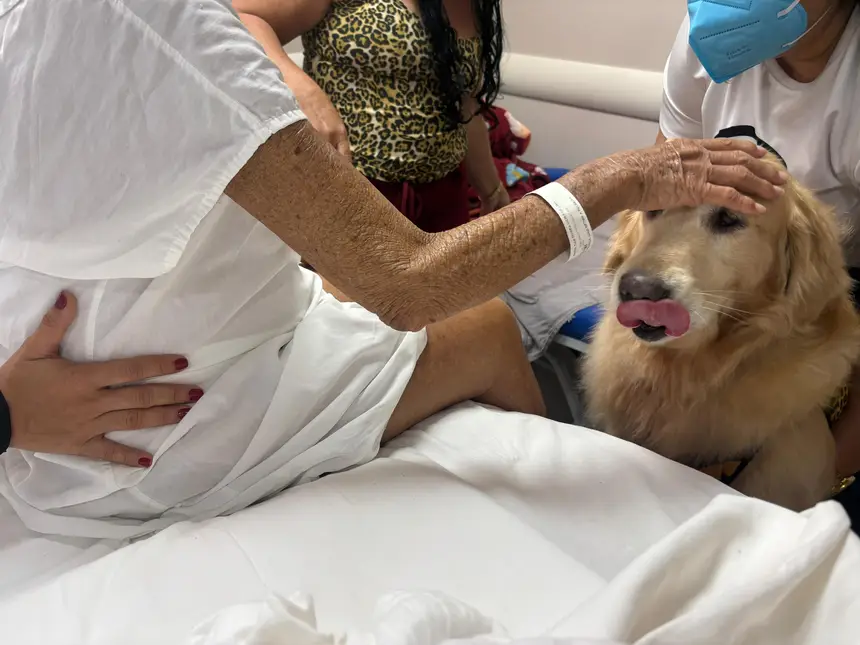
Support for families - Vanessa adds that occupational therapy also dedicates itself to guiding families and caregivers. “Our role is to engage families in therapeutic activities, provide emotional support, prepare for home care, and share responsibilities, reducing physical and emotional burden,” she explained.
Throughout this first year, the CCPO has established itself as a space for welcome, learning, and innovation within the Ophir Loyola Hospital. More than a commemorative date, the anniversary of the center symbolizes the institution's renewed commitment to care that goes beyond the disease, placing the patient and their family at the center of attention.



